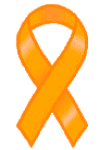 Shmittah Calendar: Month of Tishrei 5768
Shmittah Calendar: Month of Tishrei 5768

The following list is not fully comprehensive at all but includes some common everyday produce most people use. It is largely based on Rabbi Marcus's "Shmittah 5768: A Pratical Guide" (which we recommend you order for yourself here) and other sources. Please also note that there are many other shmittah calendars out there that may provide different dates that those posted here. These dates should therefore not be used "halacha lemisa" but for educational purposes only. You should however use this information to consult with your Rav as for the proper actions to take. For more information on what these dates mean see here.
Kedushat Shevi'it Starts
Many items should begin being treated as having Kedushat Shevi'it this month including:
On 1 Tishrei
Corn (Fresh)
On 3 Tishrei
Asparagus
Banana
Basil
Beets
Broccoli
Butternut Squash
Cabbage
Cabbage (Red)
Carrots
Cauliflower
Celery
Coriander
Cucumbers
Dill
Eggplant
Etrog
Fennel
Horseradish
Kohlrabi
Lettuce
Melon
Mint
Onions
Paprika
Parsley
Peas (in pod)
Pepper (Jalapeno)
Peppers
Pineapple
Pumpkin
Radish
Radish-Small
Scallion
Spinach
Strawberries
Sweet Potatoes
Tomatoes
Turnip
Watermelon
Zucchini (Squash)
Kedushat Shevi'it Ends
There are no items that Kedushat Shevi'it ends this month.
Sefichim Begins
Sefichaim Begin this month for the following:
On 1 Tishrei
Corn (Fresh)
Sefichim Ends
There are no items that Sefichim ends this month.
Biur
There are no items that will require biur this month.
Additionally, please note:
The following items are items are imported and not affected by the laws of Shmittah:
Beans
Cashews
Cinnamon
Cranberries
Cumin
Ginger
Hyssop
Kidney Beans
Kimmel (Caraway Seeds)
Lentils
Oats
Peas (Dried)
Pepper (powder - both white and black)
Pistachio
Poppy Seeds
Pumpkin Seeds
Rice
Soya
Spelt
Sugar
Tarragon
Walnut
Also Sesame is Godulei Nochri in Israel and not affected by the laws of Shmittah.
Also most Wheat used in Israel is imported. However there is wheat which is grown locally and certain bakeries specifically use it. Organic wheat is likely grown in Israel. Read labels carefully and ask your baker and then ask your local Rav for a final posak.
Oh, and one more thing! Apples - since they are in the above picture for Tishrei - they don't get Kedushat Shevi'it till Iyar, but they keep it till the following Iyar so this Rosh Hashana you don't have to finish the whole apple you dip in honey...but next Rosh Hashana you might need to!




0 Comments:
Post a Comment
<< Home